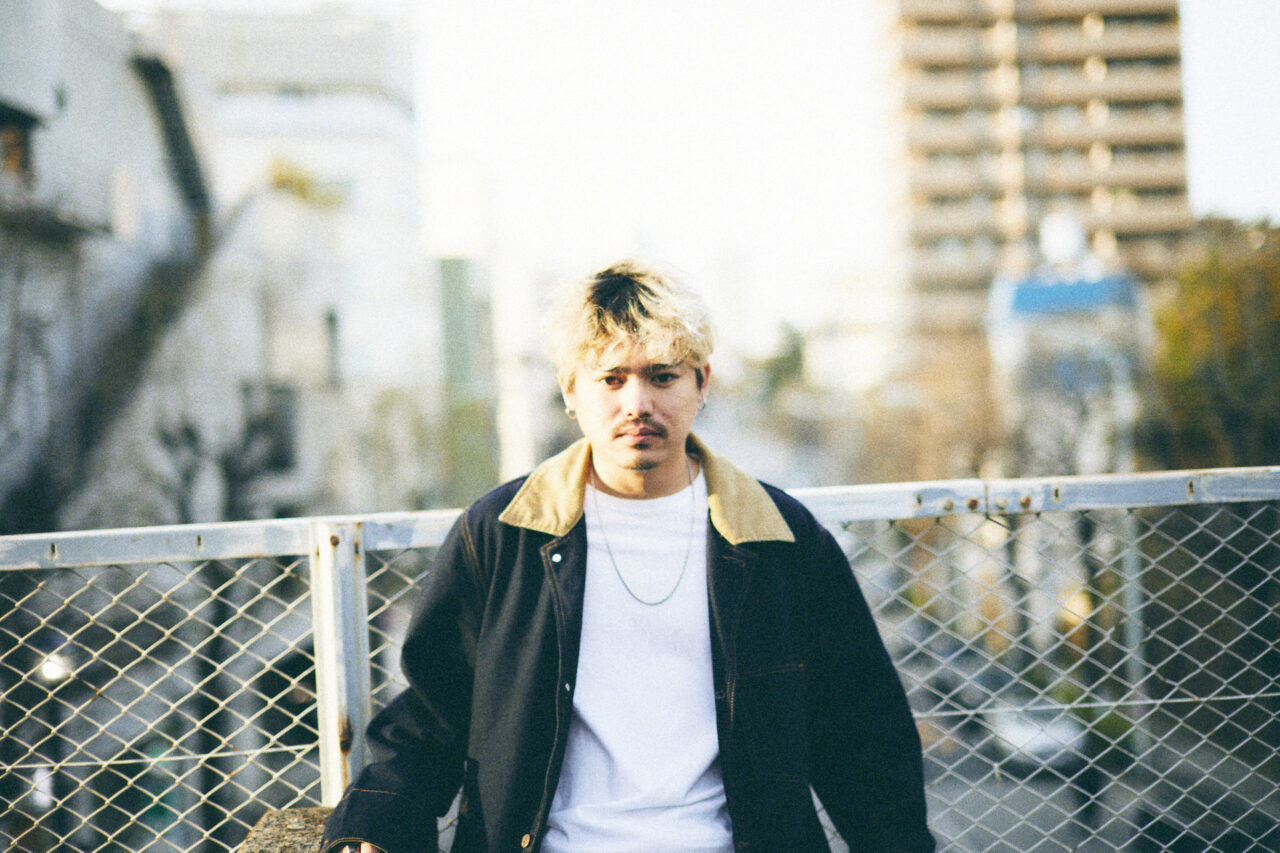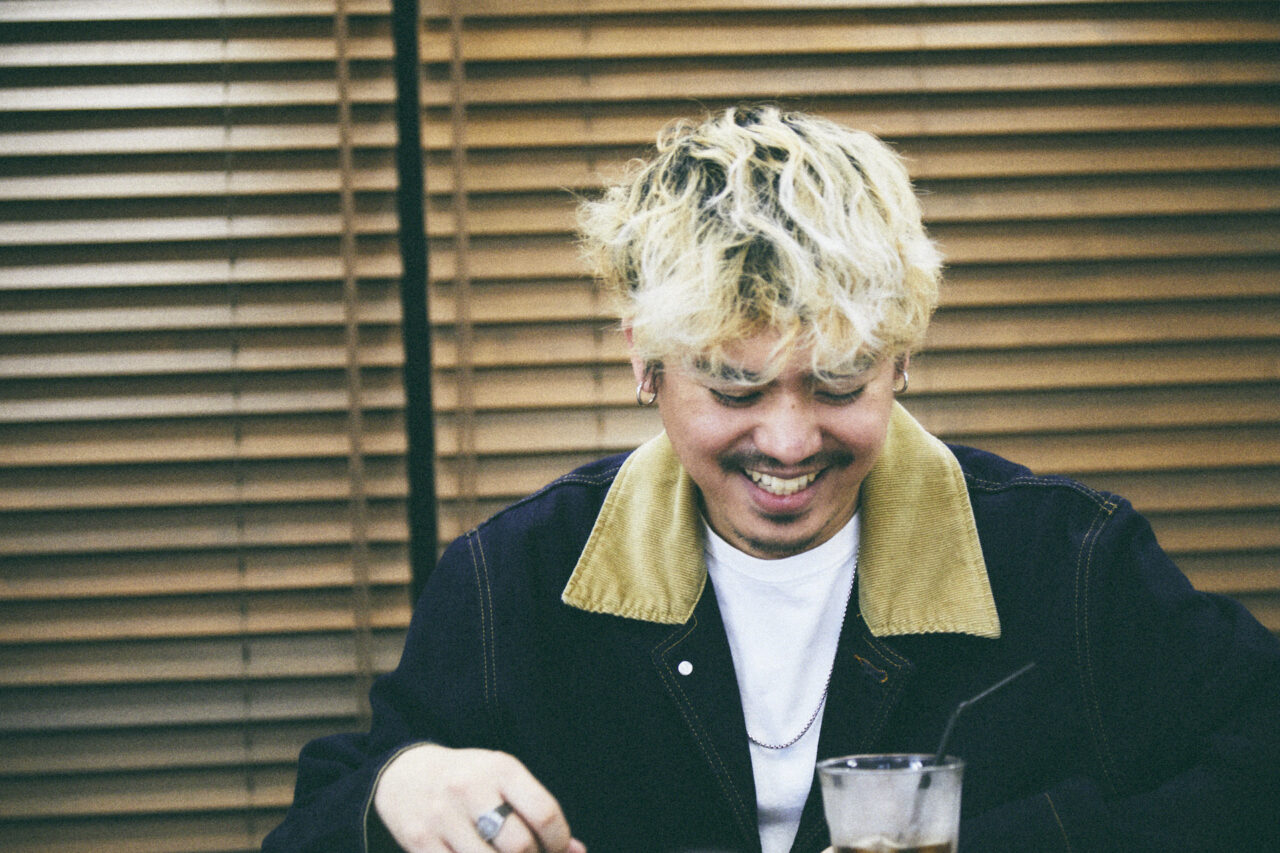Even in the early days of their career, Japan wasn’t the only market for Kobe-native alternative band The fin. to aim at. The band was based in London from 2016 to 2019, and their continuous worldwide tour, including North America, Europe, and Asia, led them to build a fan base all over the world.
Society changed significantly over the past few years because of the pandemic, resulting in many Japanese artists realizing Japan isn’t the only market. So, it must be the right timing to speak to The fin. ‘s vocalist Yuto Uchino, one of the pioneers to succeed overseas. He is perfect for NiEW as a newly launched trilingual media putting out English, Chinese, and Japanese articles.
In this first part of his interview, Yuto talks about their relationship with China, where they sell out all their thousand-capacity shows with his manager Kazuto Yamazaki.
INDEX
Venues’ capacity isn’t different regardless of cities, even outside of Beijing and Shanghai. So each city feels like performing in Tokyo

In April 2012, Yuto Uchino and Kaoru Nakazawa started their full-fledged activities as a four-piece band in Takarazuka City, Hyogo Prefecture, They have been creating music that is not bound by the Japanese rock format, as they feel the emotions of loneliness, loneliness, joy, and sadness in foreign pop music such as Metronomy, Tame Impala, Washed Out, and Friendly Fires, which they share as young Japanese people living in the same era. The fin. is active in Japan as well as overseas, and is using the Internet media to send their music out to the world with a sense of synchronicity.
-I heard The fin.’s first performance in China was ShoeGaze Festival in Shanghai in 2015.
Yuto: I received an email out of the blue saying, “We are going to do a festival like this, and we love The fin. and would love for you to be a part of it. It wasn’t from some company, but from a private eventer. At the time, we were just starting to do live shows overseas, and we were like, “We’ll go to any event that invites us,” so we were like, “Of course we’ll go! We were like, “We’re going to go!
But when we actually went to Shanghai, there was an anti-Japanese demonstration going on, and we were told that it might be dangerous for Japanese to perform at festivals now. So we were told that it might be dangerous for Japanese people to play at the festival now. So other bands were playing at the main venue, but we had to play at another small place late at night. But the audience was so enthusiastic that it made us realize that “there are people in China who are listening to us too.
-In 2017, The fin. sold out 1,200 and 800-capacity venues. What changed in the two years since 2015?
Yuto: To be honest, I had no idea what was happening in China, and it was like, “I went there and suddenly there were more people. When I arrived at the venue, I was like, “Are they really going to fill this place? But it was filled to capacity at (laughs).

Yamazaki: We played at “The Great Escape” in Brighton in 2016, and Jeff, the promoter of New Noise, who invited The fin. to China, saw our show and arranged a China tour for 2017. So having a proper promoter was a big deal, and New Noise is a company that originally invited artists from the UK and Europe to China, so our fan bases matched.
The fin. was popular in Taiwan even before that. A famous blogger in Taiwan introduced our first album “Days With Uncertainty” to the public, and it was from there that the fire was ignited. I think that article also spread in China, and there are many people in China who like Japanese music, so it may be a mix of those various factors that made them popular in China.
Yuto: It is true that the capacity of live venues in Taiwan was large from the beginning, and we felt that we were being listened to the most from that time. However, my personal feeling was, “When did the number of people listening to our music increase so much? I was like, “When did so many people start listening to our music? I was pleasantly surprised to find that people knew the songs and the names of the band members.
-The number of venues for 2018’s tour increased to eight, and all the 1,000-capacity venues were sold out.
Yuto: That’s when I became convinced. I felt like I was sure that the fans were really there. What also surprised me was that the capacity of venues in other cities was not so different from the first time I went outside of Beijing and Shanghai. In Japan, Tokyo is the largest, followed by Osaka, and regional cities usually have smaller venues, but in China, Tokyo is full of venues, and each city is large, which surprised me.
-After all, China is much bigger and has more population than Japan. But I wonder if that makes moving from one place to another more difficult.
Yuto: It is extremely difficult. You can’t take a car, and I’m worried about losing my luggage on an airplane, so I take the bullet train in China. However, the train stations in China are like airports in Japan, very spacious, and have proper security, so it is quite difficult just to move around with the equipment in tow. Then, after each show, we move on to the next one, and so on for about two weeks. …… To be honest, it’s tough (laughs).
INDEX
Selling out all shows that brought 15,000 fans in total. Embracing the band’s evolution through 2019’s China tour
-In 2018, you performed on the main stage of the Strawberry Music Festival, one of China’s biggest festivals in Beijing and Shanghai. How big was it?
Yamazaki: Beijing has a daily attendance of 80,000 people.
Yuto: The stage was bigger than the main stage at Fuji Rock.
-Why do you think The fin. reached that level?
Yamazaki: Until then, our songs had been posted online for free, but Jeff talked to NetEase (a major music distribution service in China along with Tencent) at the time of our 2018 tour, and “There” was officially distributed, and we became the first Japanese band to make it to the top banner. I was the first Japanese to be on the top banner. Nowadays, the banner changes in a day or even a few hours, but at the time, there were not that many releases, and it was the top banner for two weeks.
-Jeff from New Noise is quite a key person, right?
Yuto: The fin. has made it easier for young people to come to China because the ticket price is much cheaper than other gaitales in China. The fin. has taken into account the Chinese culture and various situations, and they have built a plan for how the fin. will proceed in China. The secret of our success may be that the team over there does a lot of the work for us, rather than a Japanese team going into China to do it.
-2019’s tour scaled further and sold out all 13 shows, bringing 15,000 fans in total. Again, it shows that The fin. built a steady fan base in China.
Yuto: 2018 was pretty tough and I honestly don’t remember much about it, but I remember the 2019 tour was really good; it was a lot more exciting than 2018, and as a band, we were finally able to enjoy our live shows in 2019. Playing 13 live shows day after day was like a training, but I could feel that we are becoming a better band by going through it.



-Initially, The fin. focused on recording, and live performance was something you were exploring, wasn’t it?
Yuto: That’s right. But around that time, I gradually came to like live performances. …… and I also came to like Chinese food (laughs). I didn’t like Hakkaku at first. When I first went there, I thought “I can’t do this,” so we all went to McDonald’s. In 2018, I think I ate nothing but bean sprouts. ……In 2019, everything I ate was delicious, and I came to think that Chinese food was delicious, too. I’m not sure if it’s a good idea to go on an international tour to experience a different food culture.
-Food is also essential for touring abroad.
Yuto: It is no good if you lack food, clothing, and shelter. When I lived in London, I was traveling all over the world, so “housing” was too unstable. In China, I now have a decent hotel, but in the beginning, there were two people in one room, and I couldn’t even eat properly, which was exhausting.
-But the environment improved over time, which is why 2019’s tour was so fulfilling.
Yuto: It is a very basic thing, but I think it is the dream of every musician to be able to go overseas with your own music, have people waiting for you there, and deliver your music directly to them. I think it is almost a miracle to be able to do that, so I feel overwhelmingly happy, and I am moved every time, no matter how many times I go.
-How would you describe performing in China compared to other countries?
Yuto: Every country is totally different. China and Thailand are totally different, England and France are totally different, and even within China, each place is totally different. That is why we think about the set list every time. The same setlist in Japan, China, and the UK might not work well, so we always think about how to structure the setlist, how much MCing to do, and so on, based on the feeling of the local audience.

Yuto: In China, the audience is very passionate, so we are able to be more physical. Nowadays, it is possible to do physical live shows anywhere in Japan, but the fact that we were able to do physical live shows in China before was probably very important for The fin. to change.
-You had to pause touring during the pandemic, but about 200,000 people in China watched the live-streaming performance in 2020, another proof of how well The fin. is received in China.
Yamazaki: Talking about after the Corona Disaster, instead of New Noise not being able to tour anymore, they started making analogs, and I heard that The fin. also became the spark for the popularity of analogs in China. The power of social networking is strong in China, and uploading videos of analog records spinning on turntables has become popular, which also seems to have contributed to the rise in their popularity.
*The second part will be coming soon.
The fin.

In April 2012, the four-piece band started full-fledged activities in Takarazuka City, Hyogo Prefecture, with Yuto Uchino and Kaoru Nakazawa as the core members, They feel loneliness, loneliness, joy, and sadness in foreign pop music such as Metronomy, Tame Impala, Washed Out, and Friendly Fires, which they can relate to as Japanese people. They are active both in Japan and overseas, using the Internet and other media to communicate their music to the world with a sense of synchronicity.
























